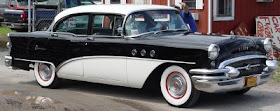 |
| Pietro Longhi's "The Confession" (1755). The Venetian artist painted the wealthy and poor of his day queuing to unburden themselves. Here at the Van Winkle Project we must do likewise... |
A few days ago the counter that shows "Time Remaining Before I Awake" fell below two hundred.
This may not sound momentous, but as difficult as it has been for me to get through the first 165 days of this project, I find myself claiming comfort wherever I can.
Hurray! I'm getting closer to the halfway point.
You see, I'm not exactly enjoying this regimen of keeping my eyes and ears away from television, newspapers, and a major chunk of the Internet or ordering my family to remain silent at the dinner table about whatever might be going on in any part of the world, large or small.
One reason for my discomfiture, which I've confessed at various points along the way, is that I tend to fail. Or to use the phrasing of old-timey alcoholics, I must confess that on occasion I have fallen off the wagon.
A SERIES OF UNINTENDED FAILURES
It's time to analyze what's been going wrong of late and develop a plan to do better with the remainder of my time "asleep."
It seems like there are three ways someone in my position can easily mess up. Conveniently, there's a metaphor for each.
1 - I'm a Cracked Egg
 |
| That would be Van Winkle (me) with the dent on the right... |
It's hard to blame myself for those times when I happen to be in the presence of someone who reveals something about the news or developments in culture. I'm struck by their information like a fragile egg that's received a hammer tap. I'm not completely shattered, but my universally uninformed status has been cracked. A couple of quick examples:
- Someone in church mentions "the sad thing that happened in Tuscon" and asks us to "pray for the victims of the shooting."
- I see a person the week of the Super Bowl wearing a foam chunk of cheese on her head walking into the grocery store. The day after the game I overhear someone saying, "It was a tough day for us Pittsburgh fans." Hmm...do you think the Packers played the Steelers in Super Bowl XLV and won? Duh...
2 - I'm a Hungry Hibernatin' Bear
 |
| Van Winkle is a like a blissful sleeping bear until he stretches, gets up and begins to groggily prowl... |
The real Rip Van Winkle was a world-class sleeper. In his twenty-year uninterrupted sleep he outdid any bear hibernating throughout the winter. Bears are known to stir in their dens and briefly arise and then go back to sleep.
Somedays I'm more like one of those bears than I'm like Rip. Without completely realizing what I'm doing I flip open a newspaper or glance at a news magazine cover. It's not like I fill my belly with news. I just crunch upon stray words as if they were dried berries. Examples:
- Republicans, House, Budget Cuts, Obama Reaches Out to Business
- Egypt, Riots, Dictators Fall, Libya, Vow to Fight to Last Drop of Blood
3- I'm a Straw Attached to a Vacuum
 |
| Sometimes I long to suck up the news without regard to consequences... |
When I have misbehaved and actually betrayed the spirit of the Van Winkle Project it been by giving into temptation and starting to read an entire article including the following:
- A review of the Coen brothers latest film, a remake of True Grit. I found it irresistible. The Coen brothers have made some of my favorite movies (see The Big Lebowski and the Whole Brevity Thing), yet they've never shot anything but their own original scripts. What's up with this? Why True Grit, which with John Wayne in the 1968 lead role is already an Academy Award-winning classic and so who needs a remake?
- An article on the lawmakers meeting in our state capitol this year and suddenly dealing with a multi-billion dollar deficit whereas the last time around they still had been able to balance the budget using leftover money from flush times. My excuse for reading this? Well, as an educator I could be affected because if they start hacking at student loan money...
ACTION PLAN
I learned something from my breakdowns and failures. Even having little chips off the news in the form of headline words or a picture here and there or an overhead remark is enough to assemble the larger picture. The mind can fill in the missing pieces.
I suppose this is why so much of the news is habitually boiled down to soundbites or crawls at the bottom of the television screen. It may not do justice to a complex, larger experience or issue, but it conveniently conveys just enough that people are happy to settle for it.
Recently my wife warned me: "If you start to hear more about certain things, then you might as well stop the whole project." That frankly frightened me. I've invested too much into my not knowing to have it all turn out to be a meaningless exercise.
So I've resolved to take the following steps.
- Never take the newspaper out of the its plastic sleeve.
- Make sure the copy of Newsweek is always lying cover-side down.
- Keep my road vision high enough when I'm stopped at stop lights that I can't see bumperstickers.
- Think about other things besides news, sports, entertainment, and weather.
- Take lots of cold showers.
.

















































